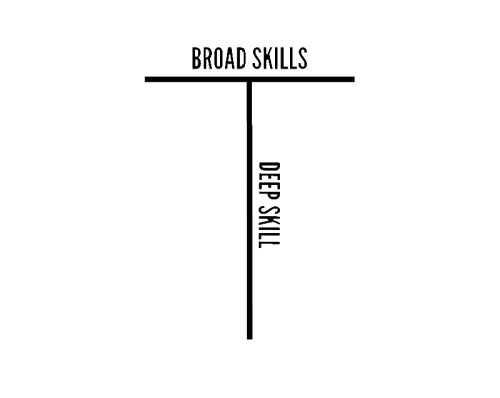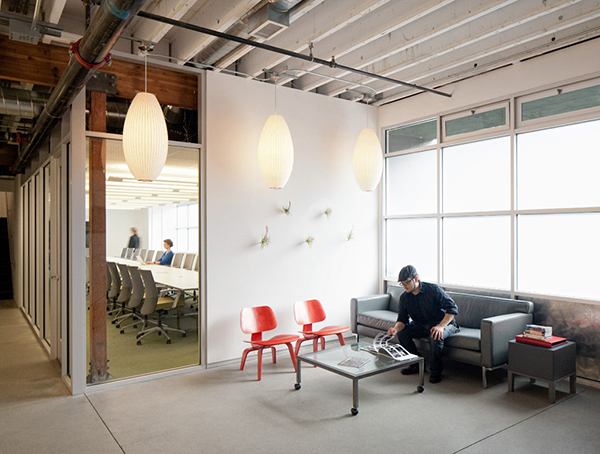HipChat was launched in 2010 with the goal of helping teams communicate and has grown into a popular tool used by tech companies such as Netflix, Pinterest, Fitbit and Salesforce.
With offices in San Francisco and Austin. HipChat is now owned by Atlassian and continues to grow as it expands into the space.
Steve Goldsmith, Atlassian's Austin office site manager and head of engineering for HipChat provides some insight into their hiring process:
 What did you look for early on when building a team?
What did you look for early on when building a team?
We are investing massively in our team to keep up with our users. Early on during this rapid expansion we were looking for two main factors: "T-shaped" people and personal scale.
T-shaped: The ability to be broadly experienced in many areas, but deep in one or more, meaning you're an iOS or python developer (the vertical part of the T), but have some experience with payment processing, AdWords or data warehouse systems (the horizontal part of the T).

Personal scale: The ability to grow with the team, deal with uncertainty, identify and solve problems, adjust your role as new team is added, etc. During these periods of significant team growth, personality and capability are the same thing. You can't just be good at your craft, you need to have the right mindset for explosive growth as well.
Now that you're growing, what do you look for in a new hire?

We still look for mostly the same things, but lean more towards specialists who can scale in their craft versus scale across the entire system. In other words, the T-shaped argument is now more focused. We look for that same personal scale ability.
We're growing quickly and need people who are excited by that chaos and the opportunity to teach the new folks, not frustrated by it.
Finally, we're looking for collaborators and educators versus mercenary-minded executors. Our team is globally distributed and there's frequent new team members in "the other office(s)."
We hire people who are excited for the opportunity to collaborate and educate (and be educated) by a remote team, who thrive in a 24-hour team workday (Always Be Coding (somewhere)) and who can appreciate the innovation of people who they may not meet face to face for several months.
What's unique about your hiring process?
We focus our innovations around getting to a hiring decision faster than our competitors for talent by leveraging our global scale. Outside of that, our goal is to quickly and correctly assess an individual's ability to help our team meet our goals. This is both a technical assessment and a cultural assessment.

The former is more quantitative - coding or design exercises, open source or portfolio type work examples, discussion about work experience, discussion about general algorithm or customer centric scenarios.
The qualitative portion is more subjective - personality, character, energy, work ethic, "culture fit" are all very subjective assessments.
The metaphor here is the Lifeboat Test: if we were stuck in a lifeboat together, how long would we make it? I personally tend to use conversational questions that allow candidates to control the pace and content to assess the more subjective criteria.
Take as much subjectiveness around the content and style of question out by asking the same question and letting the candidate drive.
Is there one question in particular that helps you determine someone's abilities?
I like to ask candidates, "What is the coolest thing you have ever built? What piece of work are you most proud of? Focus in on one project and tell me about it."
This shows many things in a short amount of time: what does the candidate think is cool? What are they proud to have worked on? Can they listen to instructions and focus in on one project or do they hop around? Can they speak succinctly and intelligently about their field of expertise?
Can they tell me a story and get me excited about something they've worked on (do they have the teacher gene)?
I like this for many additional reasons: it's completely portable across all disciplines and experience levels - talking to a 20 year industry vet or an internship candidate, it's the same question. It's also a very nice start to an otherwise anxious period for the candidate - settle into the conversation by starting with a topic that you (the candidate) control the subject matter and pace of, and are coming from a position of expertise.

For technical interviews, it also sets up the next phase of the interview - do you have the product or engineer gene? Now take that thing you just explained to me and scale it by several orders of magnitude.
What would break? Where would the system fail? Where would you need to invent something new? What would that invention look like? What are the limits of the solution you have proposed and why and what is the next evolution?
These are the types of answers that separate engineers from someone who's learned a language. I want to hear about how you've used technology in earnest, to solve high scale problems, and how you would solve problems you've never encountered.
What can someone do on paper or an application to make their skills stand out?
Know something about our products - Atlassian's products are all free to try, and HipChat is free for all teams of any size to use forever. So an email, cover letter, or resume that lacks any reference to any of our products is not likely to continue far. There are literally no barriers other than taking the time to evaluate the products.
Additionally, a resume that describes impact is much more interesting that one that describes skills. "Used react.js to launch new portal for entire community in less than 4 months" is far more interesting than "4 months experience with react.js."
Technology is an arms race, we want to hire people that can be productive quickly, showing that you've been productive in the domain, at scale, recently is really the most important thing I'm looking for in a resume.








 What did you look for early on when building a team?
What did you look for early on when building a team?







